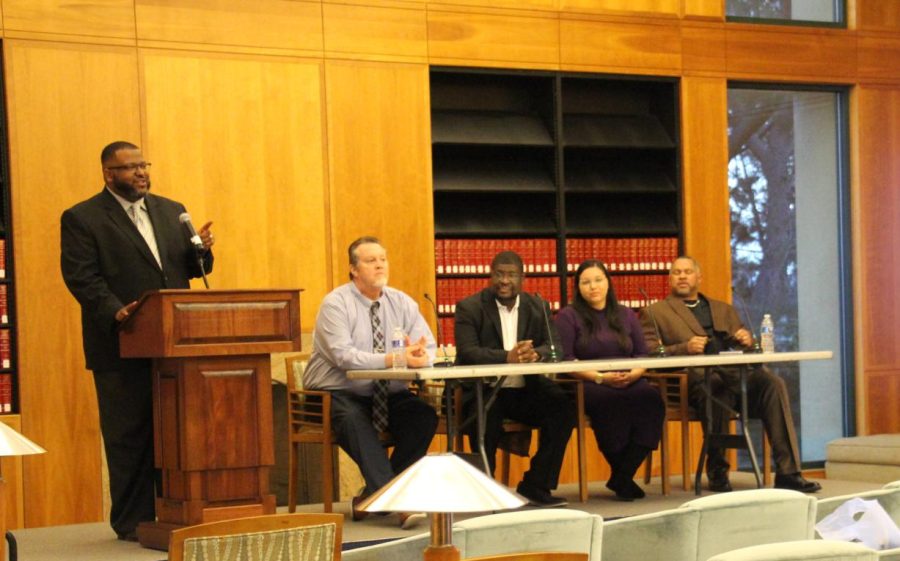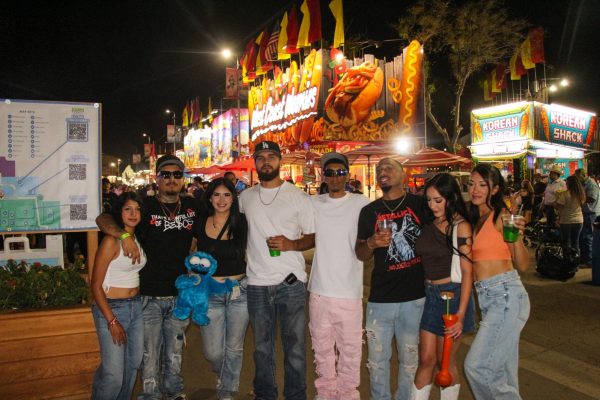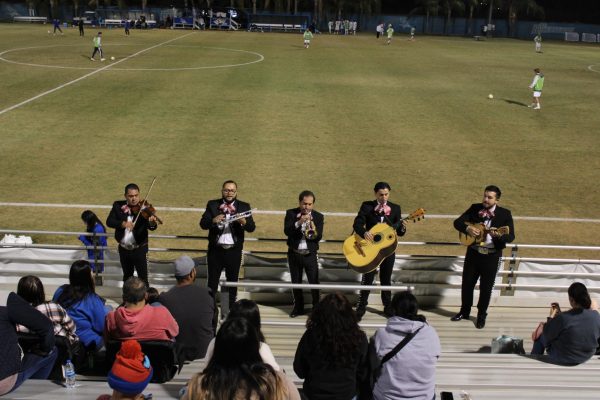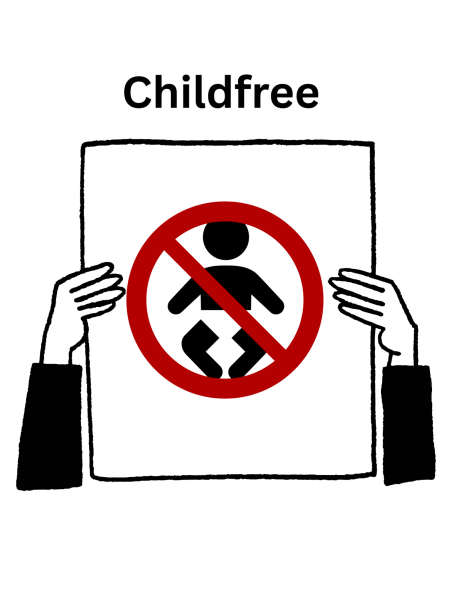Campus Voice: Friends of Project Rebound discuss stigma around incarceration and reintegration
March 2, 2023
“When the prison gates slam behind an inmate, he does not lose his human quality; his mind does not become closed to ideas; his intellect does not cease to feed on a free and open interchange of opinions; his yearning for self-respect does not end; nor is his quest for self-realization concluded. If anything, the needs for identity and self-respect are more compelling in the dehumanizing prison environment.” –Thurgood Marshall
Project Rebound held a discussion panel on Friday, Feb. 24, in the Walter W. Stiern Library’s Dezember Reading Room from 5 p.m. to 7 p.m. Despite the harrowing winter storm, many community members attended the discussion to lend their ears and their voices.
I attended as both the Project Rebound tutor at CSUB and as a community member.
The program was founded in 1967 by John Irwin, who was formerly incarcerated before he began teaching at San Francisco State University.
The discussion consisted of two panels, with the former composed of educators and administrators, and the latter made up of Project Rebound students and alumni.
After a greeting from junior psychology major and Project Rebound student James Tompkins, Thomas Wallace, vice president of student affairs, gave an opening statement.
Tompkins then returned to the stand and spoke about the powerful effect language can have when talking about incarceration and those impacted by it, urging us to “use language that empowers.”
CSUB’s Project Rebound Director, Stanley Peterson, then addressed the community and quoted Thurgood Marshall before introducing the first panel.
Composed of educators and administrators from the community, this panel revolved around the challenges surrounding reintegration from the perspective of teachers and admin personnel.
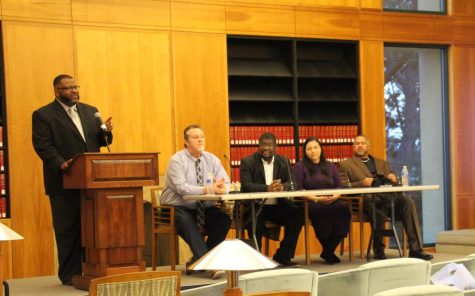
Sitting on the panel (left to right) were: Randy Clem, supervisor of correctional educational program CSP; Keith Wolaridge, author, Bakersfield College business professor, and president of Five Pillars LLC; Angelica Perez, director of Rising Scholars at BC; and Jason Bell, the executive director of Project Rebound at SFSU.
The panelists told their respective stories and experiences.
Bell shared how he was formerly incarcerated and had learned that there are “those [incarcerated] that want to get out and those who want to stay out.”
Perez recounted her time with the military and how her involvement with veterans—particularly with housing and other basic needs—led to her discovering Project Rebound and wanting to be a part of it.
Wolaridge mentioned how he was once part of the private sector, stating that there was this “paradigm” he and his colleagues perceived amongst those impacted by the prison system, and that Project Rebound didn’t make sense at first.
Clem shared how he was a recovering addict, and that education was a saving grace, noting its great importance in the reintegration process.
After their narratives, Director Peterson also shared how he was system impacted: His father died in prison, his brother went to prison, and he had “more cousins in prison than not.”
As such, he grew up in poverty, and he voiced how Project Rebound would have made a dramatic difference.
The floor was then opened for questions and comments from the audience. While a great variety of voices clamored out, a common thread appeared amongst the fruitful discussion—what can we, as students and faculty and representatives and community members, do? How can we aid in the reintegration process?
These were questions that did not have easy answers, but that was the purpose of discussion panels like this one.
These individuals, whether currently incarcerated or formerly, are just like us outside the system. Simply because we do not see them, do not want to see them, does not mean they don’t exist.
We need to ask ourselves how we can help. We need to listen to those asking for help. We need to understand that higher education is a right. We need, as Wolaridge wisely put it, to “just love all of them.”
After some closing remarks, the discussion transitioned to the second panel with students and alumni from Project Rebound.
During this transition, a video about Project Rebound and its impact at CSUB was played. It can be found on the CSUB website on the Project Rebound page, or you can follow this link: https://www.csub.edu/rebound/.
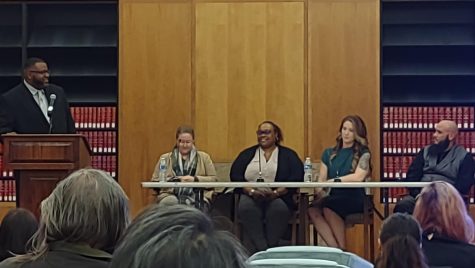
Director Peterson opened the second panel with some engaging questions for the panelists. He asked what they thought they were good at, what the biggest challenges they faced were and who inspired them.
Larry Gonzales (right most), a junior sociology major, veteran and Project Rebound student, joked that he’s great at staying out of prison. He continued, saying he was initially intimidated at the prospect of higher education, but that the support and inspiration from Tiffany James, a coworker, and his wife kept him going.
Elisabeth Bowen (right), a senior business administration major and Project Rebound student, shared that she is great at advocating and is a part of several student organizations on campus. Additionally, she spoke about how she doesn’t resemble the stereotypical incarcerated person and that she faced a lot of internal conflict on whether to hide her past or embrace it. This transitioned into how she became the person she needed, developing her self-confidence and inspiring herself.
Tiffany James (left), a graduate student pursuing a master’s in public administration, talked about her experience supporting others and how the “trials and tribulations” she went through shaped her. She also shared how both her biggest challenge and greatest source of inspiration were her children. She wasn’t concerned with how others saw her, but she wanted to better herself for her children, citing that “they are the future.”
Lastly, guest panelist Lori Pesante (left most), executive civic engagement director for the Dolores Huerta Foundation and adjunct professor for law enforcement/criminal justice at BC, answered that she is great at breaking down complex concepts into more easily digested analogies. She is both an ally and advocate for Project Rebound, having previously worked with the program during a voter registration event in Fall 2022.
As before, Director Peterson opened the floor for discussion and fielded questions from the audience.
Many members of the audience recognized and congratulated the panelists and their efforts.
One Project Rebound student in particular—Jonathon Burkett, a senior criminal justice major—thanked Bowen and James for their support, stating he will be 63 come summer and will proudly have a bachelor’s in criminal justice.
As the discussion drew to a close, Director Peterson gave a call to action, asking those in attendance to sign up as allies and advocates for the program and its future endeavors.
Now, at the end of this (admittedly) lengthy recap, I also wish to give my own call to action. Make no mistake, I do not presume to speak on the program’s behalf. While an employee of the program, I am not formerly incarcerated, nor have I been directly impacted by the prison system; however, I do work closely with many of the students in the program. All I have to say is this:
There should exist no person that can decide for another what to do with their life.
Further, any individual may stand alone, but no one should have to be alone. Project Rebound, CSUB, Bakersfield and even the world are all part of the community. And in that community, one’s happiness is everyone’s happiness, and one’s sadness is everyone’s sadness. One’s success is everyone’s success, and one’s failure is everyone’s failure.
Whenever possible, we should endeavor to shoulder these times, both the great and the terrible.
For that is what it means to be a community. That is what it means to be a part of Project Rebound.



